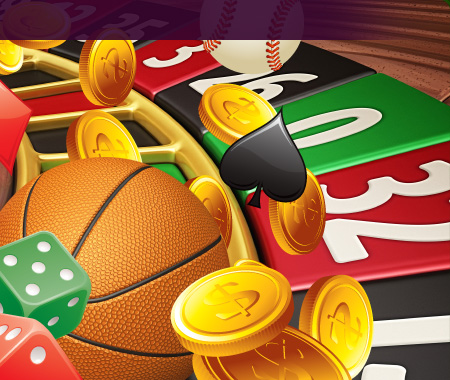Texas Holdem Odds
Dear Mark,
I was playing Texas Hold'em with my wife and got a pair of Kings. Nothing that followed, the flop, fourth or fifth street, helped either of us. As this was the final hand of the evening, we decided to bet dinner at our favorite restaurant on the outcome. Wouldn't you know it, she had aces. What were the odds of her having aces? Clay B.
You'd think, Clay, with a starting hand of Kings, dinner would be on your spouse, but against your wife's pocket rockets (aces), you only had a 17.82% chance of winning.
As to the odds of your wife having aces, there are 1326 two-card combinations that can be made from a 52 card deck, with six combinations for each pocket pair. 1326 divided by 6 equals 221, therefore, the odds of your wife being dealt pocket aces, or any other pocket pair (your Cowboys for that matter), are 220 to 1. In some happy marriages, the wife always wins on the last hand.
Dear Mark,
I need further clarification on how "all-in" works in Texas Hold'em. This happened on television the other night while I was watching a poker tournament: Player "A" with a massive amount of chips bet a substantial amount of money, and player "B," with far fewer chips, consequently went all-in.
Do I understand that if player B had won he would only have received the portion of the pot that he could cover? If so what happens to the rest of the pot? Maribeth K.
To go "All-in," Maribeth, is to bet all the money you personally have on the table. A player who is all-in cannot be forced out of the pot, but can win only that portion of the pot that he or she is eligible for.
In your example, player B did not have enough table stakes to cover future raises, so he went all-in. He was simply contesting that portion of the pot that his money would cover.
Had other players still been active in the hand, wagers could still have been made, but those bets would then comprise a side pot. At the end of the hand, the side pot is decided first, then the main pot. Player B would not be eligible to win the side pot since he had no money invested in it, and it would therefore be distributed among the surviving players as though there had been no Player B.
Dear Mark,
What are your thoughts on machines that constantly shuffle cards? Jay P.
No fan here, Jay. My hang-up is that continuous shuffle machines have a negative effect on the typical blackjack player, primarily because the casino gets 20 percent more hands dealt per hour by using them. With more hands per hour, the player's hourly loss increases, since the casino already holds an edge over the average player.
Dear Mark,
Concerning blackjack versus roulette, which does a player stand better chance of winning? I am leaning more towards roulette due to the black/red or odd/even scenario. I am aware of the 0 and 00 killing my bets, but does blackjack still provide better odds? Damon C.
Blackjack is a game played poorly by many, and well by few. The desirable rearrangement is quite simple: Employ perfect basic strategy. Playing it correctly will bring the house advantage down to well less than one percent.
But, even Ho-hum Hannah's careless play at blackjack is far-and-away a better deal than double zero roulette, where the house edge is 5.26% of every bet you place on the table. Yep, Odd/Even, Black/Red, it doesn't matter. The casino advantage is 5.26% and you aren't going to change that with any particular wager.
Now if your blackjack play is ghastly, like splitting 10s against a dealer Ace, well... stick with roulette, but only on a single zero roulette wheel where the house edge is a less murderous 2.70%.
What's so special about single zero? Because, Damon, while in the end you will lose about $5.26 for every $100 wagered on a double-zero table, your loss at the single-zero table drops to a more digestible $2.70.
FROM OUR EMAIL
- Black Jack Tips
- Craps Strategies
- Four Card Poker
- Jacks or Better Basic Strategy
- Roulette Strategies
- Slot Machine Strategies
- Video Poker Tip



